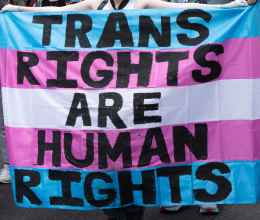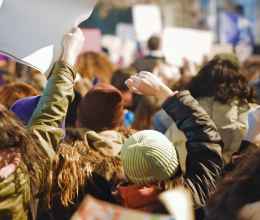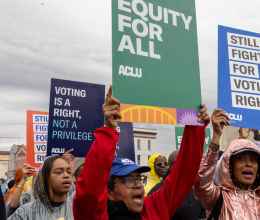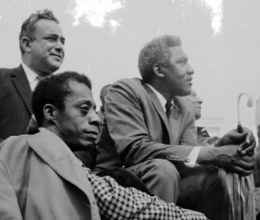
Much like the events following the police raid at New York’s Stonewall Inn in June 1969 – which helped trigger what we now celebrate as LGBTQ+ Pride – there has long since been an ongoing rebellion led by transgender and gender non-conforming people, lesbians, gays, street hustlers, and several others, many of whom are people of color, against the violent and routine harassment they have long experienced at the hands of state officials.
That night at Stonewall wasn’t the first time we’d see such a coalition fight back against the forces that purported to serve, protect, and defend the rights of all Americans. It wouldn’t be the last, either.
In 1937, more than thirty years before Stonewall, a group of unsuspecting patrons ran for safety at a gay bar in Miami called La Paloma when dozens of people raided it. That raid, however, hadn’t been officially orchestrated by the police, but rather by the Ku Klux Klan. The Klan had implored the police to shut La Paloma down for weeks and insisted that if the police did not act soon, they would take matters into their own hands. And so they did. The police at least tacitly approved of it and later followed that raid up with a number of their own.
As the histories of both La Paloma and Stonewall make clear, LGBTQ+ rights can only be fully secured alongside the liberation of those most marginalized among us, including the full liberation of Black folks and other people of color, immigrants, and transgender and gender non-conforming people, among others.
Five years ago, in June 2016, a person waged a hate-filled attack of terrorism on the Pulse gay nightclub in Orlando and ended the lives of 49 people -- mostly LGBTQ+ people of color.
When the Pulse massacre occurred, it was the largest mass shooting in U.S. history. It no longer is. In fact, despite the countless number of tragic mass shootings that happened both before and after Pulse, we’ve seen almost no progress in gun control reform. These snapshots from our historical archives provide both guidance and roadmaps for moving forward.
LGBTQ+ Pride means defending the right to teach Black history and studies across our campuses in Florida and beyond, now demonized and banned in the form of the latest boogeyman known as “critical race theory.” Of course, Black history is LGBTQ+ history too. Pride also means defending the rights of immigrants, many of whom have been at the center of the LGBTQ+ movement from the start. It is also fighting back against attacks on transgender people in the state and beyond, most recently by prohibiting them from playing school sports.
LGBTQ+ liberation will only ever come to fruition if we maintain a vision of full liberation for us all.




